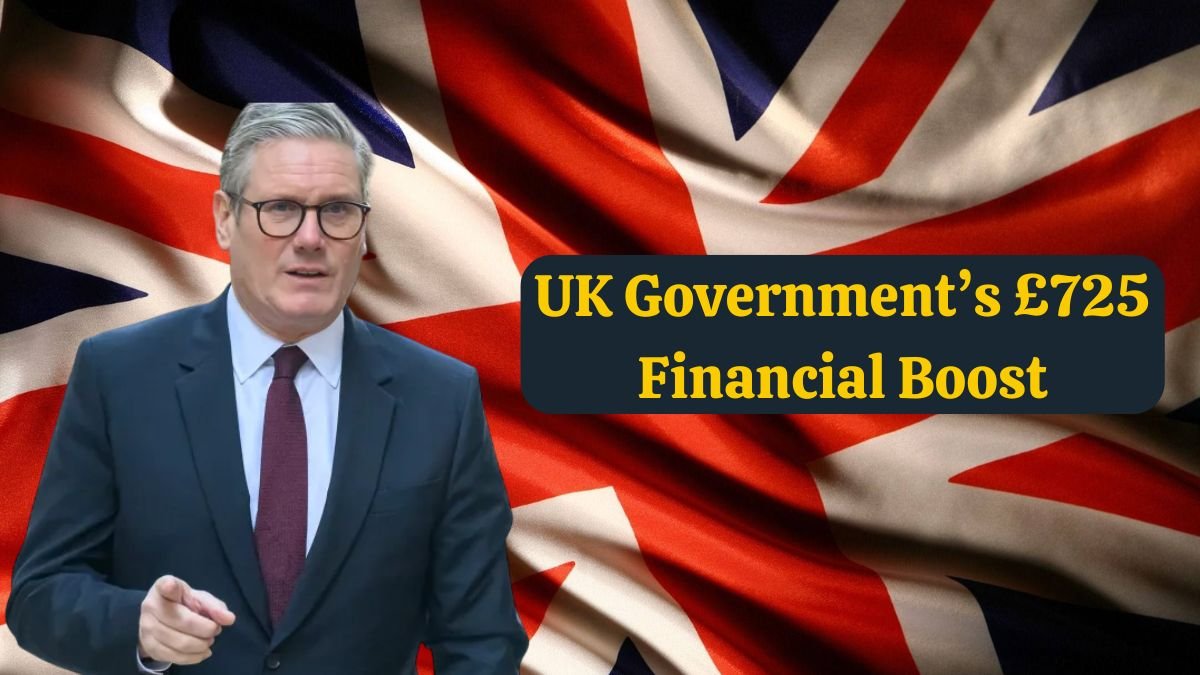UK Government’s £725 Financial Boost: What Everyone Needs to Know. In a historic move, the UK government has announced the biggest real-term increase since 1980, which is expected to bring relief and stability to the lives of millions of people. After the Universal Credit Bill was passed by the House of Commons, about 4 million families are set to receive an additional £725 in financial support by 2029/30. This scheme is not just a financial aid, but a new idea – towards giving people a self-reliant and dignified life.
What is the spirit of this scheme?
The aim of this scheme is not just to distribute money, but to raise the standard of living, remove obstacles in the way of employment and completely revamp the social welfare system. This economic increase will have the biggest impact on those who are unable to work, especially those who are disabled, sick or unemployed for a long time.
Direct assistance of £725 – the biggest increase ever
By 2029/30, a single person aged 25 or older will receive £725 more of Universal Credit’s standard allowance. The special thing is that it has been increased not just keeping inflation in mind, but keeping in mind real expenses and needs.
This financial assistance:
- Will help deal with rising inflation.
- Will reduce poverty.
- Will provide financial security to millions of families.
‘Right to Try Guarantee’ – New hope for people with disabilities
Another revolutionary step of this policy is the ‘Right to Try Guarantee’, which ensures that people who have health problems or disability can try to work without fear.
Under this scheme:
- If a disabled person tries to work and his condition worsens again, he will not have to undergo reassessment again.
- This will create a sense of confidence and security in them.
- They will feel that the government appreciates their efforts.

Permanent assistance will be given to people suffering from serious diseases
About 2 lakh people, who have been placed under the Severe Conditions Criteria – that is, those who are suffering from such serious diseases that they will never be able to work – will be given permanent financial assistance.
- Their standard allowance and health-related top-up payments will increase every year according to inflation.
- They will not have to go through the trouble of frequent checkups or assessments.
- This will ensure long-term financial security.
Major reform in the PIP system – changes according to the experience of beneficiaries
Under the leadership of Disability Minister Stephen Timms, a comprehensive review of the Personal Independence Payment (PIP) system is being launched.
In this, suggestions will be taken directly from people with disabilities, experts, MPs and organizations.
The aim is to create a system that:
- Is simple, equitable and humane.
- Prioritizes the dignity and convenience of beneficiaries.

£3.8 billion employment investment – now every hand will get work
The government has not limited itself to just increasing allowances. They want people to work, become self-reliant, and live a life with dignity. A huge investment of £3.8 billion has been made to do this.
With programmes like Connect to Work:
- People with disabilities or illness will get personal guidance.
- One-to-one support will help keep them in employment.
Local training, new job centres and guidance will help reduce economic inactivity.
Why is this change necessary?
All these reforms have the same spirit behind them – giving people the right to live a dignified life. In today’s world, when inflation is rising, jobs are becoming unstable and mental/physical illnesses are keeping people confined to their homes, this scheme has emerged as a ray of light.
- It is not just a benefit, it is a right to dignity.
- This is not just help, it is a way to live equally in society.
- This is not just a government scheme, but a redefinition of justice and humanity.
Conclusion
This historic plan of the UK Government is not just about numbers, it is a concrete effort towards changing people’s lives. The £725 financial assistance, the review of the PIP system, legal protection for disabled people, and investment in employment, all together are laying the foundation of a new, just and inclusive Britain. This is not just a declaration – it is a promise, a dedication, and above all, a resolve to stand with every person in need.
FAQs
Q1. What is the £725 Universal Credit boost and who qualifies for it?
A. The £725 boost is a real-terms increase in Universal Credit benefits, helping nearly 4 million UK households by 2029/30. Anyone currently receiving Universal Credit, especially those over 25 and on the standard allowance, will benefit from this change.
Q2. How will this financial boost help disabled people or those with health issues?
A. The government’s new “Right to Try Guarantee” lets disabled people attempt work without fear of losing benefits if their condition worsens. This builds trust and encourages work without putting financial stability at risk.
Q3. What is changing in the Personal Independence Payment (PIP) system?
A. The PIP system is undergoing a major review to make it fairer and more accessible. This includes consultations with disabled individuals and experts to design a simpler and more supportive benefits process.
Q4. Will people with severe lifelong conditions continue receiving support?
A. Yes, around 200,000 people under the Severe Conditions Criteria will be protected from reassessments. Their payments will also rise with inflation to ensure long-term financial security.
Q5. What is the goal behind the government’s £3.8 billion employment investment?
A. This investment supports personalized programmes like “Connect to Work,” helping people with health issues find and keep jobs. The aim is to reduce economic inactivity and promote meaningful employment.


